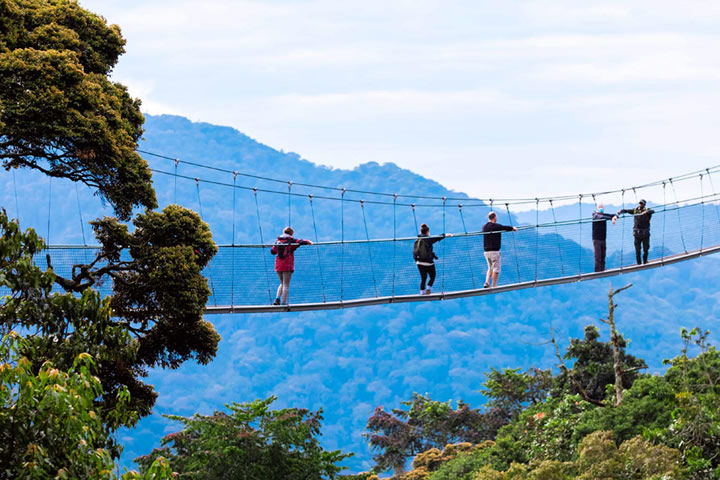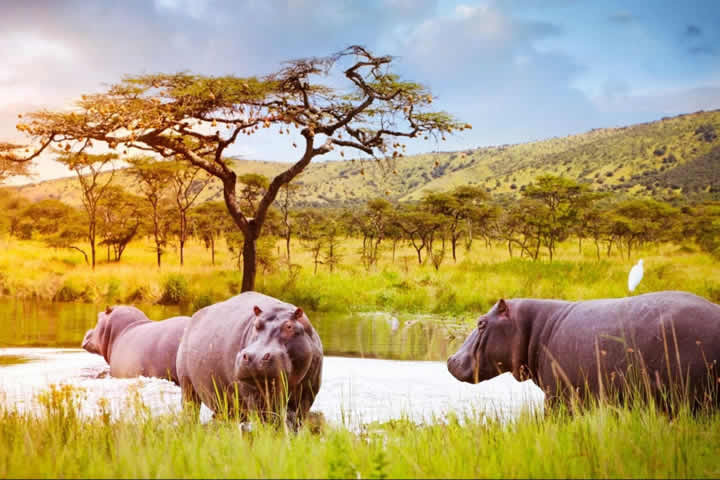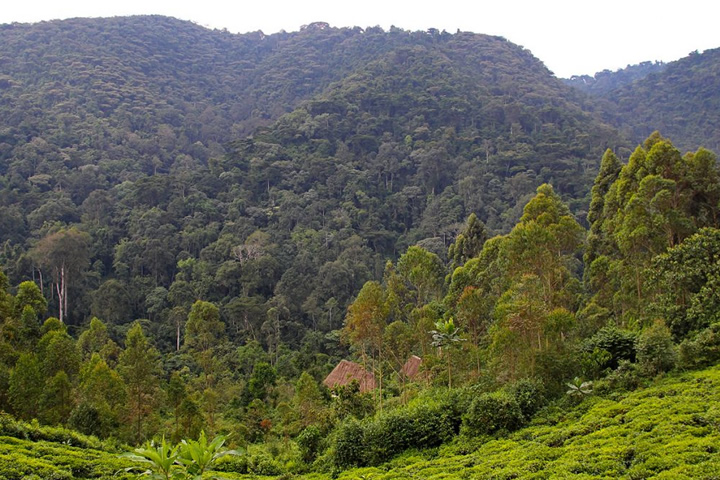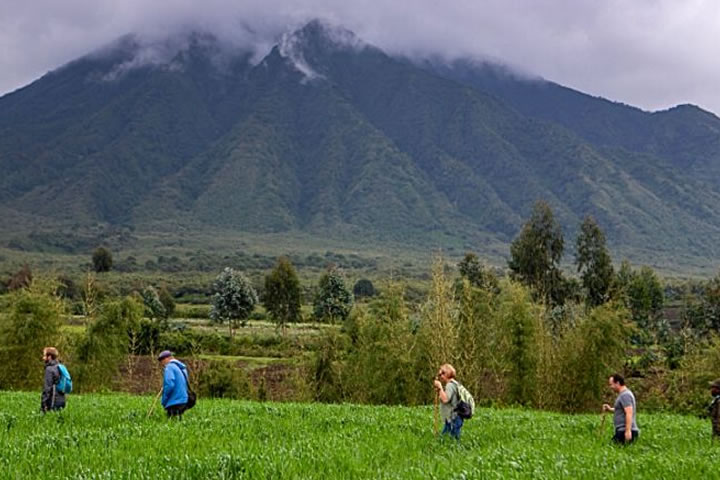Discover Rwanda, the land of a thousand hills – a vibrant country known for its breathtaking landscapes, rich culture, unique wildlife, and warm hospitality. Learn more about Rwanda’s history, people, and travel experiences. Rwanda is a landlocked nation whose most well-known event is the 1994 genocide, which claimed about a million lives in just three months. This was one of life’s most horrific experiences and an event to remember.
Amazingly, Rwanda has changed dramatically in the present, made every effort to reclaim its history, and resolved never to go through what happened there. Rwanda is currently one of the East African nations with the fastest rates of growth when compared to most states.
Rwanda’s capital city, Kigali, is currently one of the cleanest and fastest-growing cities in the world. This remarkable landlocked nation is home to over 11.2 million people. It is one of the smallest republics in Africa, covering an area of only 26,338 square kilometres.
French, English, Kinyarwanda, and Kiswahili are the main languages spoken there.
The majority of them—roughly 94%—believe in Christianity, with the remaining minority holding onto 0.1% of their traditional or indigenous African beliefs, 4.6% of Muslims, and 1.7% of people not believing in any religion at all.
The ethnic groups in Rwanda
In contrast to other African states, Rwanda’s population is 85% Hutus, 14% Tutsis, and 1% Twa. Here, men and women may expect to live for roughly 54 and 57 years, respectively.
Currency
The country’s currency is Rwandan Franc (Rwf).
Location
Rwanda is strategically situated east of the Democratic Republic of the Congo in East Central Africa, just south of the Equator and along the Great Lakes region. Tanzania, Burundi, and Uganda encircle it. Its breathtaking scenery comprises grasslands, and the majority of its rocky hills stretch southeast from the Virunga Massifs in the northwest, giving it the nickname “Land of a Thousand Hills.” With a height of 4519 meters, the highest mountain is the Karisimbi Volcano.
Climate
The climate of Rwanda is perfect, with distinct rainy and dry seasons. The first part of the wet season usually lasts from March to May, with the second part starting in October and ending in November. June to September and December to February mark the start of the dry season.
The natural wonders in Rwanda
Natural resources found in Rwanda include gold, cassiterite, methane, hydropower, arable land, wolframite, and wildlife that lives in four of the country’s national parks: Akagera National Park, which is the only savanna grassland park in Rwanda with big game (elephants, buffaloes, lions, rhinos, leopards, and other wildlife species including giraffes and several antelope species); Volcanoes National Park, which is home to a section of rare mountain gorillas, Nyungwe National Park, for chimpanzee tracking and Forest Canopy walk; and Gishwati-Mukura National Park, a recently established protected area that is highly significant for its unique primates.
The majority of Rwandans are farmers who raise cattle in addition to cultivating primarily tea, coffee, pyrethrum, sorghum, beans, bananas, and potatoes. In contrast to its industries, which mostly deal with cement, small-scale beverages, farm products, soap, shoe manufacturing, plastic items, cigarettes, and furniture, to name a few, the country’s major exports are tea, hides, iron ore, and coffee.
The Democratic Republic of the Congo, the US, Thailand, Malaysia, Germany, Swaziland, Pakistan, China, and other countries are among the nation’s top export markets. Foodstuffs, steel, petroleum products, machinery and equipment, and many other items are imported. Tanzania, Uganda, Kenya, India, UAE, Tanzania, Russia, and Tanzania are among the import partners.
Newspaper circulation in Rwanda is low, and the press typically engages in self-censorship. According to US-based Freedom House, critical bloggers are typically located overseas, whereas State TV and Radio, on the other hand, serve a larger geographic range.
What to do while on safari in Rwanda
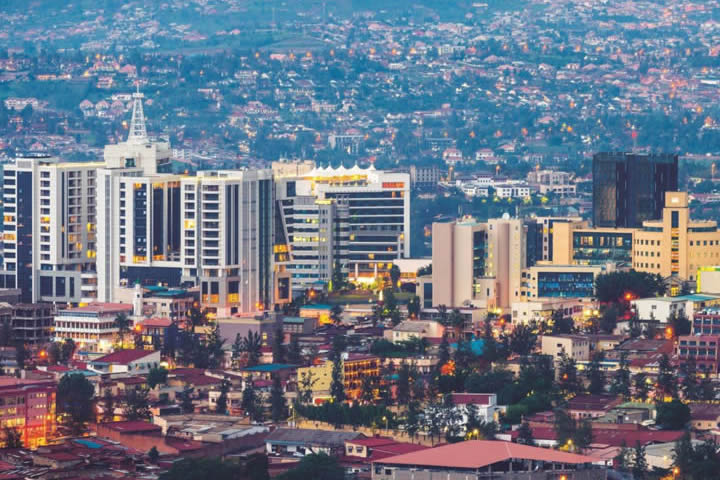
The top safari destinations in Rwanda are Akagera National Park, where you can see African elephants, buffaloes, rhinos, lions, leopards, and other wildlife; Volcanoes National Park, which is the best place to go mountain gorilla trekking; Nyungwe Forest National Park, where you can track chimpanzees; and Gishwati Mukura National Park, which is a newly established park that opened in 2019.
The majority of the five (5) volcanoes that make up the eight Virunga Mountains are excellent for hiking excursions. You can partake in a variety of safari activities in Rwanda, such as bicycling, birdwatching, wildlife game drives, gorilla trekking, canopy walks, chimpanzee trekking, boat trips, and more. To name a few amazing locations, Lake Kivu and the Twin Lakes are highly recommended.
Rwanda also has a unique culture and art, the majority of which is on exhibit at historical, archaeological, and national museums.
How to get to Rwanda
Rwanda is accessible by plane and road for tourists on African safaris. The nation’s flag carrier, RwandAir, flies throughout Africa and international borders. KLM, Brussels, Kenya Airways, Ethiopian Airlines, Turkish Airlines, South African Airways, Uganda Airlines, and numerous other airlines are examples of other airlines.
In summary, Rwanda offers more than just gorilla tourism. Explore this enchanted nation for the ultimate in wildlife encounters, hiking activities, and cultural interactions that will leave you with lifelong memories.

